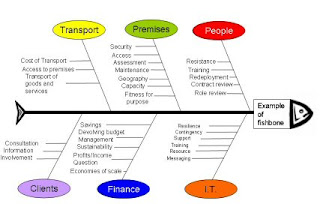In this post, we are going to focus on the importance of project procurement management and the increasing use of outsourcing for information technology projects. The term procurement means acquiring goods and/or services from an outside source. There are different ideas about outsourcing. Some companies, such as Wal-Mart, prefer to do no outsourcing at all, while others do a lot of outsourcing. But why do companies outsource? There are different reasons among which we may rank: a) To reduce both fixed and recurrent costs, b) To allow the client organization to focus on its core business, c) To access skills and technologies, d) To provide flexibility, e) To increase accountability. The main key of outsourcing is the contract , which is a mutually binding agreement that obligates the seller to provide the specified products or services and obligates the buyer to pay for them. Project procurement management means acquiring goods and services for a project from outside the performing ...






